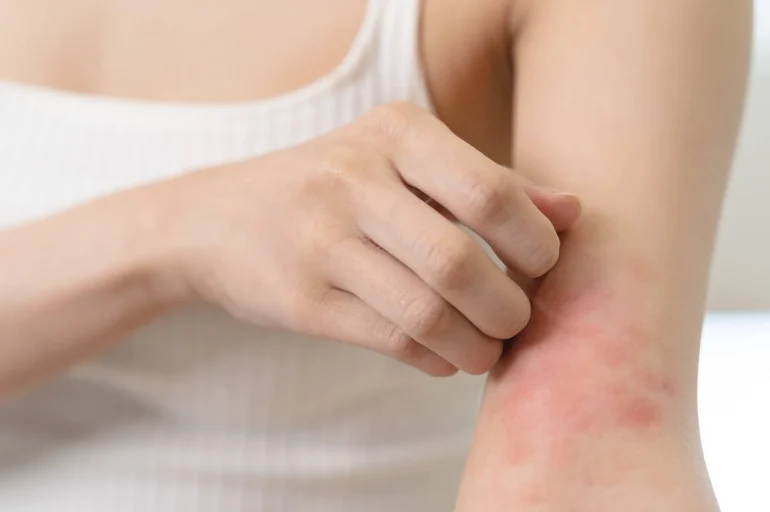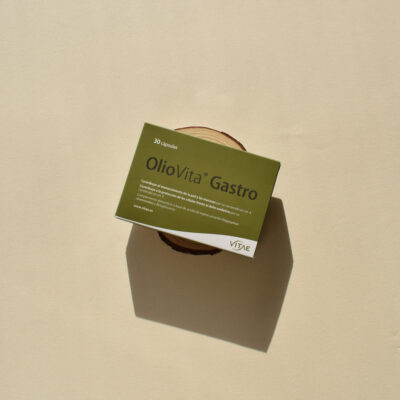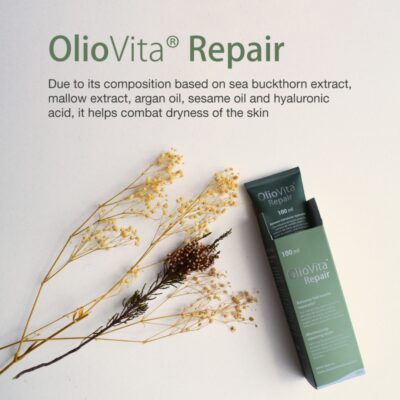Atopic dermatitis, also known as eczema, is a chronic skin condition that affects people of all ages around the world. This inflammatory skin disease can cause significant discomfort and affect the quality of life of those who suffer from it. As its incidence continues to rise, understanding the triggers, symptoms, and treatment options becomes critical to effectively addressing this condition. In this article, we will explore in depth atopic dermatitis, its underlying causes, the challenges it poses, and the latest treatment strategies to alleviate its symptoms and improve patients’ quality of life.
What is atopic dermatitis or eczema?
As we have described in the introduction to this article, atopic dermatitis is a chronic skin condition that is characterized by inflammation and redness of the skin, as well as the presence of intense itching. This condition can affect people of all ages, but is most common in babies and young children. Atopic dermatitis is often associated with a history of allergies or asthma, and can worsen in response to triggers such as certain foods, chemical irritants, weather changes, and emotional stress.
What are the causes of atopic skin?
Atopic skin can have several causes, although it often involves a combination of genetic, immunological and environmental factors. Some of the common causes of atopic skin include:
Genetics: Genetic predisposition plays an important role in atopic dermatitis. If one or both parents have a history of allergies, asthma, or atopic dermatitis, a child is more likely to inherit the condition.
Immune dysfunction: Atopic skin is thought to be related to an abnormal immune response in the skin, which can lead to increased inflammation and increased susceptibility to irritations.
Environmental factors: Exposure to certain allergens such as pollen, dust, dust mites, and pet fur, as well as irritants such as chemicals in soaps, detergents, and cleaning products, can trigger or worsen symptoms.
Climate changes: Extreme weather conditions, such as cold, dry weather in winter or excessive heat in summer, can dry out the skin and trigger flare-ups of atopic dermatitis.
Emotional stress: Stress and strong emotions can trigger or worsen atopic skin symptoms in some people, although the precise relationship between stress and atopic dermatitis is not fully understood.
Main symptoms of atopic dermatitis
- Dry and cracked skin.
- Itching (pruritus).
- Swollen skin rash that varies in color depending on skin color.
- Small bumps (in people with dark or black skin).
- Exudate and scabs.
- Thickened skin.
Eczema in children or babies
Eczema symptoms often appear in childhood and can range from mild to severe. A child is more likely to develop atopic dermatitis if one of his or her parents has had it.
Children with atopic dermatitis are at high risk for food sensitivities. You are also more likely to develop asthma and hay fever.
Some children can outgrow atopic dermatitis.
What is the best way to treat atopic dermatitis?
Treatment for dermatitis focuses on relieving symptoms, controlling flare-ups, and keeping skin as healthy and hydrated as possible. Some of the common treatment strategies include:
Regular hydration: Regularly use moisturizers and emollients to keep skin hydrated and prevent dryness, which can help reduce itching and inflammation.
Topical medications: Low to high potency topical corticosteroids can be used to reduce inflammation and itching during acute flares. Topical calcineurin inhibitors may also be prescribed as an alternative to steroids.
Avoid irritants: Avoid contact with known irritants and allergens, such as certain soaps, detergents, cleaning products, and rough fabrics that may worsen symptoms.
Oral treatments: In more severe cases, oral medications may be prescribed, such as antihistamines to help relieve itching and antibiotics if there are signs of secondary skin infection.
Light Therapies: Ultraviolet light phototherapy may be helpful for some patients as it can reduce inflammation and improve skin condition in moderate to severe cases.
Stress management strategies: In some cases, stress management therapy and psychological care may be beneficial, as emotional stress can trigger or worsen flare-ups.
Use creams from products free of perfumes or parabens : Each person may benefit from a different product. If extra hydration is needed because the skin is very dry, we will use balms. Preferably balms with ingredients with soothing peptides, centella asiatica extract and sea buckthorn.
Take food supplements rich in omegas: The combination of Omega 9,7, 6 and 3 containing products with sea buckthorn oil ingredients improve cellular structure and function, repair the skin’s barrier function from the inside , act as a seal/film that keeps moisture in. They reduce skin sensitivity and inflammation.

As we have said before, there are several habits or strategies that can help to treat atopic dermatitis, but from Vitae we always recommend to go to the specialist doctor and to consult any doubt that you may have.










